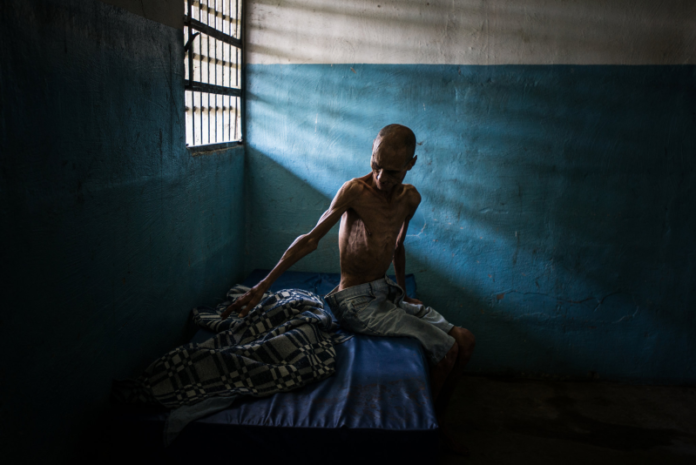Abstract
-
A dismal decline in public psychiatric institutions in Venezuela has reinstated appalling practices, reminiscent of a less enlightened era.
-
Mental health services face gross deterioration, with instances of psychiatric wards turning into pigsties as a stark illustration of this grim reality.
-
The critical failure of the system accentuates a severe human rights violation, highlighting the urgent need for change and visibility for those affected.
-
This crisis underscores the dire necessity of denouncing the situation and raising awareness, in the face of the fear of political persecution that hinders the mental health community.
A Deplorable State of Affairs
In anticipation of teaching a clinical community psychology course at my base university in Caracas, Venezuela, I encountered a distressing revelation. A tweet from May 2022, put forth by a student who wished to remain anonymous, complained about the presence of a pig family in a psychiatric ward that was intended for clinical training. These claims, while initially implausible, were substantiated by pictures and videos of pigs wandering through the hospital.
Upon discussing this with my class, I learned that a fellow student had shared the tweet and later deleted it due to threats for revealing the situation. My request to speak to the student directly was met with acceptance.
Dire Consequences of Mismanagement
As per the student’s explanation, the hospital’s directors, exploiting the lack of services, allowed a family of homeless milicianos to move in and breed pigs for personal consumption. The university, which already shares a strained relationship with the government, feared a hostile reaction from the military staff managing the hospital, leading to accusations of the student breaching professional confidentiality.
The degradation of the mental health system in Venezuela has been a matter of grave concern for several years. Efforts to develop alternative networks and treatment options have been made to mitigate the repercussions of this downfall. I have been particularly cautious about publicly criticizing the deteriorating conditions at El Peñón psychiatric hospital in Caracas due to fears of worsening the government’s persecution of medical professionals.
A Systemic Failure
Access to quality healthcare in Venezuela has been a nationwide crisis for a decade now, with mental health services suffering the worst of it. Conditions at public psychiatric wards, such as at the Psychiatric Hospital of Caracas at Lídice and El Peñón, have been alarming, with rampant corruption, lack of food for patients, and infrastructural issues like windows being cemented shut to prevent escapes.
The psychiatric system in the country is woefully inadequate, with a meager number of psychiatric centers and outpatient centers struggling to meet the population’s demands. Health professionals are reluctant to interact with reporters, fearing persecution.
An International Outcry
By 2016, the international press began reporting on the deteriorating mental health institutions in Venezuela, highlighting patient suffering and lack of resources. By 2022, a nationwide survey on the impact of Covid-19 on mental health in Venezuela revealed that out of 264 public centers, a meager 4% responded to calls, and only half of them had operational psychological services.
Colleagues who persist in the public health sector reported unofficial orders to avoid all hospitalizations, leaving no public places to treat individuals in crisis. The Hospital Universitario de Caracas, which was once a progressive service, had only one hospitalized patient recently, as she had no family or home to return to.
A Call for Action
The collapse of the traditional system represents a gross violation of human rights and a regression to the dehumanizing conditions of nineteenth-century psychiatric wards. While this systemic failure could be seen optimistically as a chance to develop patient-led approaches to mental health, it’s paramount to first acknowledge the plight of many who have little voice amid this economic, social, and political crisis. Our focus should be on raising awareness and overcoming the fear of political persecution that has consumed the mental health community.









